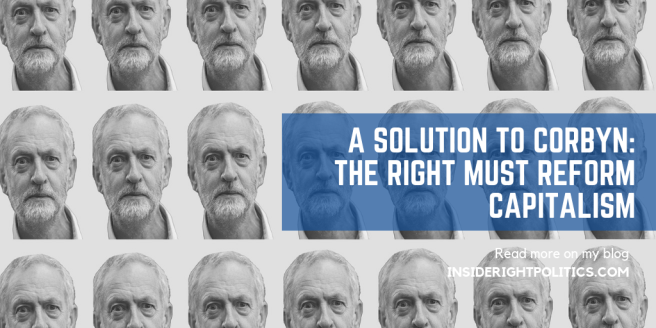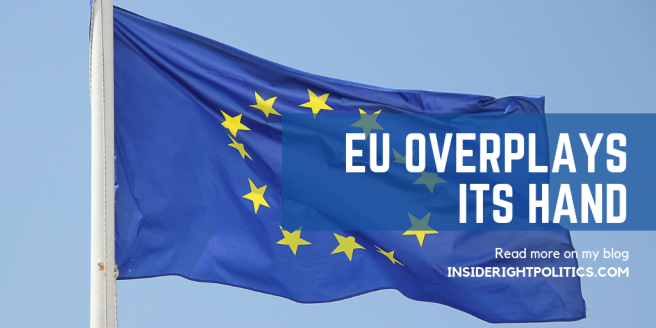‘Oh Jeremy Corbyn’ has spoken and it doesn’t sound good for those of us who believe in free markets. Fluent for him, with some witty lines, he took apart capitalism at his Party Conference claiming our economic system is broken.

Indeed, there was a flurry of economic initiatives throughout Labour’s time in Liverpool and, uncomfortably, it reminded me of the 2017 General Election campaign. However impractical, sharply defined policies sounding superficially good were showcased, making the Tories, drowning in Brexit, appear flat footed. Umm…Ground Hog Day…
And those policy initiatives will resonate with many of the electorate. Taxes on the rich, massive increases in public spending, hundreds of thousands of ‘green’ jobs, extended childcare, workers on boards, wholesale nationalisation of utilities and a scheme to hand out 10% of the shares of big companies to workers. These policies could really fly and a Labour Government is not nearly as improbable as it should sound. The only firewall is a few DUP MPs keeping the Tories afloat. It all feels a bit precarious.
Of course the shear incompetence of the Labour front bench, the fact that nationalisation doesn’t work despite the failings of some privatisation structures, massive debts which will ultimately be paid for by the ordinary public, all mean many of these policies would be disastrous.
The first problem of course is that many voters don’t remember the chaos of a left-wing Labour Government. The second problem is more intractable; capitalism globally has failed in several respects over the past decade and is losing popular support.
A brilliant article by Martin Wolf in Wednesday’s FT summed it all up incisively. Inequality is rising across the West, driven by quantitative easing and inflated asset prices. Austerity is being borne by the poorest, global corporations avoid tax due to tax structures rarely crossing borders and excessive market liberalism, which caused the 2008 financial crash in the first place, has fuelled migration causing enormous tensions and the rise of populism.
Capitalism should be reformed and in the UK I would rather that was undertaken by the Right rather than the likes of Corbyn.
So what needs to change? As Wolf says, those who govern us should ‘promote a little less liberalism, show a little more respect for the ties binding citizens to one another and pay more tax’. Only in this way can we keep politics close to the centre ground and protect the social liberalism and democratic values that we take for granted.
There needs to be negotiations on comprehensive global tax structures. At home, subsidies favouring the rich such as higher rate tax relief on pension contributions need to end. The obsession of cutting corporation tax has also run out of control. Planned further cuts should be frozen and companies also need to reform excessive remuneration structures. It is perfectly fair to reconsider reforming NI contributions for the self-employed too so that they are treated equally with other workers. Then there has to be comprehensive social care reform and a commitment to infrastructure spending in the North.
As for immigration pressures, they should be managed but the solution is not Brexit. It is at least a pan-European issue and we are walking away from the table at the very moment our influence is needed.
If there is any bandwidth outside the Tories’ obsession with Brexit, they need a radical agenda to reform capitalism that most of us can buy into. Otherwise Corbyn will do it for them and not in a good way.
